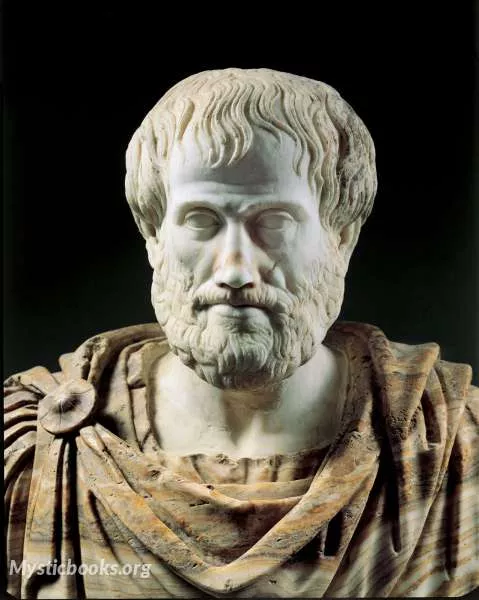
Timeline
Title
Country/Nationality
Aristotle
Aristotle (384–322 BC) was a Greek philosopher and polymath during the Classical period in Ancient Greece. Taught by Plato, he was the founder of the Lyceum, the Peripatetic school of philosophy, and the Aristotelian tradition. His writings cover many subjects including physics, biology, zoology, metaphysics, logic, ethics, aesthetics, poetry, theatre, music, rhetoric, psychology, linguistics, economics, politics, and government. Aristotle provided a complex synthesis of the various philosophies existing prior to him. It was above all from his teachings that the West inherited its intellectual lexicon, as well as problems and methods of inquiry. As a result, his philosophy has exerted a unique influence on almost every form of knowledge in the West and it continues to be a subject of contemporary philosophical discussion.
Little is known about his life. Aristotle was born in the city of Stagira in Northern Greece. His father, Nicomachus, died when Aristotle was a child, and he was brought up by a guardian. At seventeen or eighteen years of age he joined Plato's Academy in Athens and remained there until the age of thirty-seven (c. 347 BC). Shortly after Plato died, Aristotle left Athens and, at the request of Philip II of Macedon, tutored Alexander the Great beginning in 343 BC. He established a library in the Lyceum which helped him to produce many of his hundreds of books on papyrus scrolls. Though Aristotle wrote many elegant treatises and dialogues for publication, only around a third of his original output has survived, none of it intended for publication.
Aristotle's views on physical science profoundly shaped medieval scholarship. Their influence extended from Late Antiquity and the Early Middle Ages into the Renaissance, and were not replaced systematically until the Enlightenment and theories such as classical mechanics were developed. Some of Aristotle's zoological observations found in his biology, such as on the hectocotyl (reproductive) arm of the octopus, were disbelieved until the 19th century. His works contain the earliest known formal study of logic, studied by medieval scholars such as Peter Abelard and John Buridan. Aristotle's influence on logic also continued well into the 19th century.
He influenced Judeo-Islamic philosophies (800–1400) during the Middle Ages, as well as Christian theology, especially the Neoplatonism of the Early Church and the scholastic tradition of the Catholic Church. Aristotle was revered among medieval Muslim scholars as "The First Teacher" and among medieval Christians like Thomas Aquinas as simply "The Philosopher". His ethics, though always influential, gained renewed interest with the modern advent of virtue ethics.
Books by Aristotle
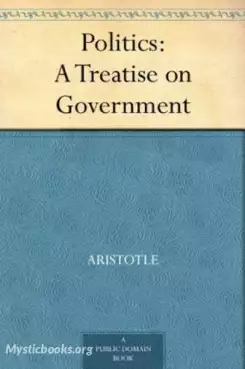
Politics
The Politics, by the ancient Greek philosopher Aristotle, is one of the most influential texts in political philosophy. In it, Aristotle explores the role that the political community should play in developing the virtue of its citizens. One of his c...
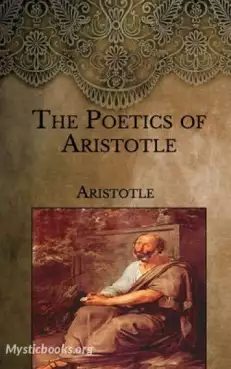
Poetics
Aristotle's Poetics is the earliest surviving work of dramatic theory and first extant philosophical treatise to focus on literary theory. In this text Aristotle offers an account of ποιητική, which refers to poetry or more literally "the poetic art,...

Physics
The Physics is a named text, written in ancient Greek, collated from a collection of surviving manuscripts known as the Corpus Aristotelicum, attributed to the 4th-century BC philosopher Aristotle.
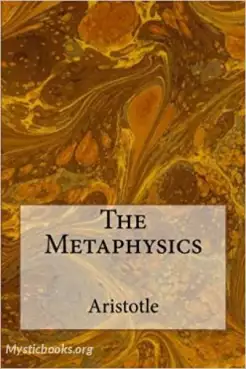
Metaphysics by Aristotle
Metaphysics is one of the principle works of Aristotle, in which he develops the doctrine that he refers to sometimes as Wisdom, sometimes as First Philosophy, and sometimes as Theology. It is one of the first major works of the branch of philosophy...
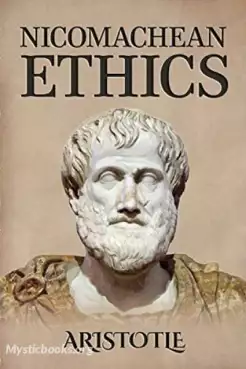
Nicomachean Ethics
The Nicomachean Ethics is the name normally given to Aristotle's best-known work on ethics. The work, which plays a pre-eminent role in defining Aristotelian ethics, consists of ten books, originally separate scrolls, and is understood to be based on...
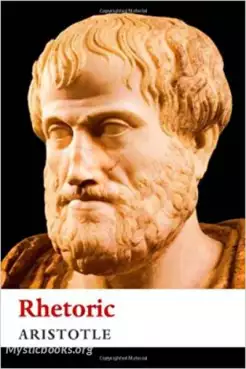
Rhetoric
Aristotle's Rhetoric is an ancient Greek treatise on the art of persuasion, dating from the 4th century BCE. The English title varies: typically it is titled Rhetoric, the Art of Rhetoric, On Rhetoric, or a Treatise on Rhetoric.
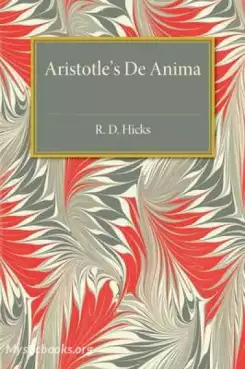
De Anima
On the Soul is a major treatise written by Aristotle c. 350 BC. His discussion centres on the kinds of souls possessed by different kinds of living things, distinguished by their different operations. Thus plants have the capacity for nourishment and...
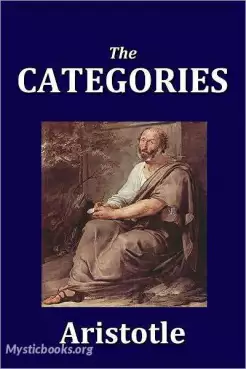
Categories
The Categories is a text from Aristotle's Organon that enumerates all the possible kinds of things that can be the subject or the predicate of a proposition. They are "perhaps the single most heavily discussed of all Aristotelian notions". The work i...
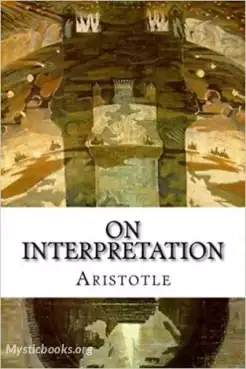
On Interpretation
De Interpretatione or On Interpretation is the second text from Aristotle's Organon and is among the earliest surviving philosophical works in the Western tradition to deal with the relationship between language and logic in a comprehensive, explicit...
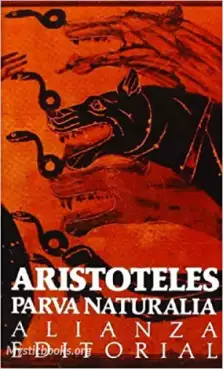
Parva Naturalia
The Parva Naturalia are a collection of seven works by Aristotle, which discuss natural phenomena involving the body and the soul. They form parts of Aristotle's biology.

Posterior Analytics
The Posterior Analytics is a text from Aristotle's Organon that deals with demonstration, definition, and scientific knowledge. The demonstration is distinguished as a syllogism productive of scientific knowledge, while the definition marked as the s...
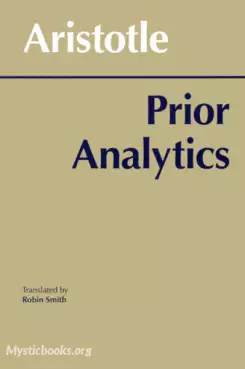
Prior Analytics
The Prior Analytics is a work by Aristotle on deductive reasoning, known as his syllogistic, composed around 350 BCE. Being one of the six extant Aristotelian writings on logic and scientific method, it is part of what later Peripatetics called the O...

On Generation and Corruption
On Generation and Corruption also known as On Coming to Be and Passing Away is a treatise by Aristotle. Like many of his texts, it is both scientific, part of Aristotle's biology, and philosophic. The philosophy is essentially empirical; as in all o...
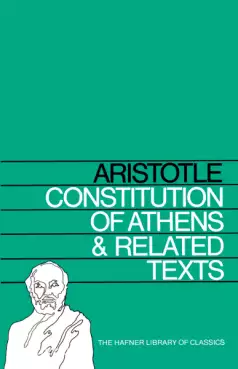
The Constitution of Athens
The Constitution of the Athenians, also called the Athenian Constitution is a work by Aristotle or one of his students. The work describes the constitution of Athens. It is preserved on a papyrus roll from Hermopolis, published in 1891 and now in the...
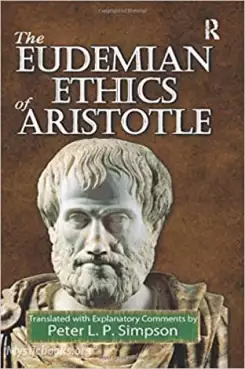
Eudemian Ethics
The Eudemian Ethics is a work of philosophy by Aristotle. Its primary focus is on ethics, making it one of the primary sources available for study of Aristotelian ethics. It is named for Eudemus of Rhodes, a pupil of Aristotle who may also have had a...
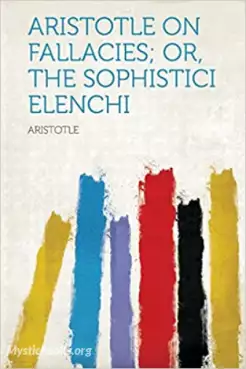
Sophistical Elenchi
The Sophistical Elenchi is the sixth of Aristotle's six texts on logic which are collectively known as the Organon ("Instrument"). In the Sophistical Elenchi Aristotle identifies 13 falacies. Verbal Fallacies are: Accent or Emphasis; Amphibology; Equ...
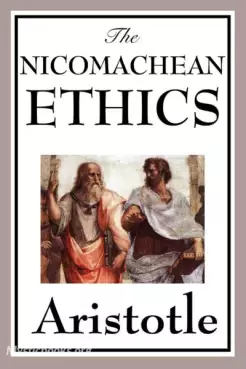
The Nicomachean Ethics
The Nicomachean Ethics is Aristotle's best-known work on ethics, the science of the good for human life, which is the goal or end at which all our actions aim. The aim of the inquiry is political science, and the master art of politics. It consists...
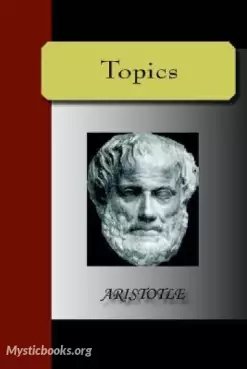
Topics
The Topics is the name given to one of Aristotle's six works on logic collectively known as the Organon. The treatise presents the art of dialectic — the invention and discovery of arguments in which the propositions rest upon commonly held opinions...

On the Parts of Animals
Parts of Animals is one of Aristotle's major texts on biology. It was written around 350 BC. The whole work is roughly a study in animal anatomy and physiology; it aims to provide a scientific understanding of the parts (organs, tissues, fluids, etc....
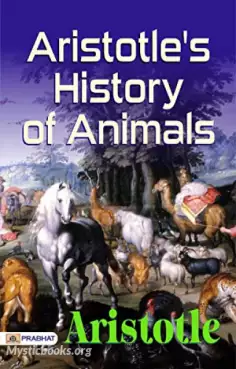
History of Animals
It is a comprehensive study of the animal kingdom, exploring its different species and their behavior, habitats, and anatomy. Written by the renowned Greek philosopher, Aristotle, the book is considered one of the earliest works of zoology and remain...
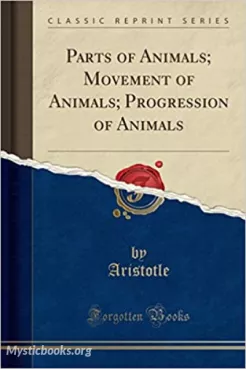
Movement & Progression of Animals
It offers a detailed exploration of the movement and behavior of animals. In "Movement & Progression of Animals", Aristotle divides the animal kingdom into different categories based on their physical characteristics and behaviors. He provides detai...

Generation of Animals
It explores the topic of animal reproduction and embryonic development. In "Generation of Animals," Aristotle delves into the complexities of animal reproduction and argues that animals come into existence through a process of gradual development. H...
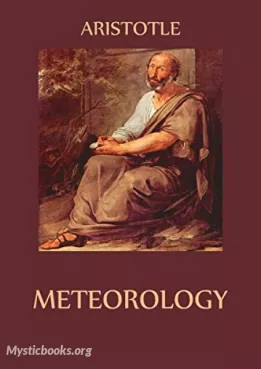
Meteorology, On the Universe & On Breath
In this captivating collection of writings, Aristotle, the renowned philosopher and scientist of ancient Greece, delves into the fascinating subjects of meteorology, the cosmos, and the essence of breath. With his keen observations and logical analys...
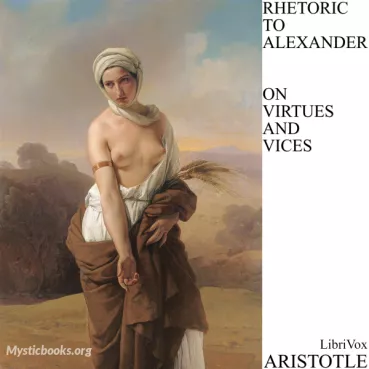
Rhetoric to Alexander & On Virtues and Vices
Unlock the timeless wisdom of one of history's greatest minds as Aristotle himself takes you on a journey through the realms of rhetoric and ethics in his profound works, "Rhetoric to Alexander" and "On Virtues and Vices." Step into the world of anci...
Showing 1 to 24 of 30 results